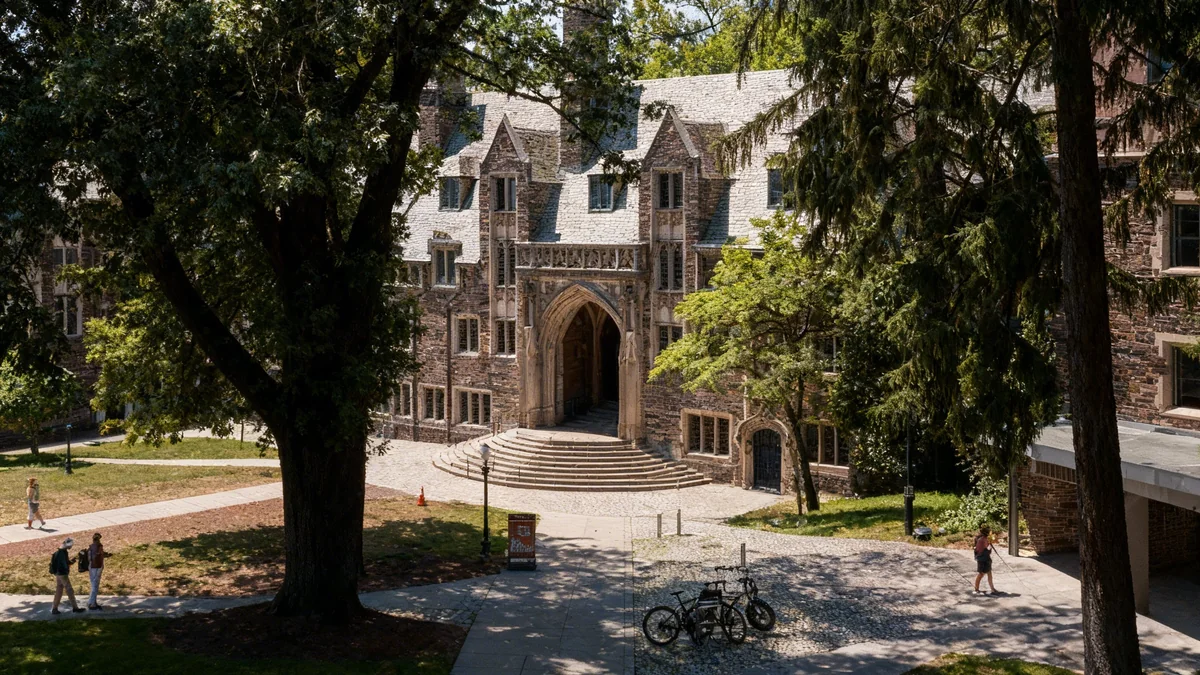Angelo State University, a public institution in Texas, has directed its faculty to stop discussing transgender and nonbinary identities in their courses. The directive, which has not been issued as a formal written policy, has created significant confusion and concern among professors regarding academic freedom and student welfare.
The new rules were communicated to faculty through department heads following a meeting with university president Ronnie D. Hawkins. This move makes Angelo State the first public university in Texas known to implement such broad restrictions on the acknowledgment of gender identities in academic settings.
Key Takeaways
- Angelo State University faculty have been instructed to avoid discussing transgender and nonbinary identities.
- The directive was delivered verbally through department chairs, and no official written policy has been provided.
- The university cites compliance with a presidential executive order, a gubernatorial letter, and a state law as justification.
- Civil rights and academic groups argue the university's interpretation is a misapplication of the law and a violation of academic freedom.
- The restrictions later expanded to all five universities within the Texas Tech University System.
Unwritten Directives Cause Campus Confusion
Faculty at Angelo State University (ASU) report that the new restrictions on classroom content were introduced without a campus-wide announcement or a formal written document. Instead, the information was passed down verbally after a meeting between President Ronnie D. Hawkins and academic leaders.
According to multiple faculty members, who spoke on the condition of anonymity due to fear of professional repercussions, department chairs and deans were tasked with informing their staff. This method of communication has led to widespread uncertainty about the exact scope and enforcement of the new rules.
Linda Kornasky, an English professor who founded the university’s gender studies minor, confirmed that the directives were communicated through emails and in-person meetings. The lack of a clear, written policy has left many professors unsure of what is permissible to teach.
Background on the Texas Tech University System
Angelo State University is one of five institutions in the Texas Tech University System. Located in San Angelo, ASU enrolls over 12,000 students and employs more than 400 faculty members. The recent directive initially appeared to be isolated to ASU but was later expanded system-wide by Chancellor Tedd Mitchell.
Specific Instructions from Department Heads
Emails from Jason Pierce, the chair of ASU’s history department, provided some of the most specific guidance available to faculty. In these messages, Pierce stated that discussing homosexuality or bisexuality was still acceptable, but any discussion of transgender topics was now "forbidden."
The instructions also mandated the removal of any mention of transgender identity from course descriptions and the omission of textbook chapters covering the subject. Pierce confirmed the existence of these emails, explaining he was instructed to disseminate the information quickly to prevent an incident similar to a recent controversy at Texas A&M University.
Initially, there was confusion about whether professors could use students' preferred names and pronouns. A later clarification indicated that preferred names were allowed, as were Pride flags in offices. However, the core restriction on teaching about transgender identity remained.
University Cites State and Federal Directives
In a statement, ASU spokesperson Brittney Miller declined to confirm the specifics of the guidance but said the university was complying with existing directives. She did not provide a copy of a written policy.
Miller referenced three sources for the university's decision:
- A presidential executive order from the Trump administration recognizing only male and female genders as assigned at birth.
- A letter from Texas Governor Greg Abbott directing state agencies to “reject woke gender ideologies.”
- Texas House Bill 229, a state law requiring a binary definition of gender for collecting vital statistics.
"As such, Angelo State University fully complies with the letter of the law.”
These justifications have been heavily criticized by academic and civil rights organizations, who argue that the university is misinterpreting and overreaching its authority.
Scrutiny of Legal Justifications
Legal experts and advocacy groups point out that the presidential executive order and the governor's letter do not have the force of law. Furthermore, they note that House Bill 229 pertains to the collection of government data and makes no mention of restricting academic discussions in higher education.
Concerns Over Academic Freedom and Student Impact
The new rules have drawn strong condemnation from groups advocating for academic freedom and civil liberties. The Foundation for Individual Rights and Expression (FIRE) and the American Association of University Professors (AAUP) have described the move as a direct assault on First Amendment rights.
Brian Evans, president of the Texas Conference of the AAUP, called the directive a "blatant violation of First Amendment and academic freedom rights," highlighting the lack of process in its implementation.
Professors have expressed concern that the restrictions will severely limit their ability to teach a wide range of subjects. Questions have arisen about whether they can discuss historical topics like cross-dressing in Shakespearean plays or even academic studies that are critical of transgender identity. The fear is that any mention could be construed as a violation, potentially leading to termination.
Impact on Transgender Students
Beyond the impact on faculty, advocates worry about the message being sent to transgender and nonbinary students. Hayden Cohen, a nonbinary student and state policy director for Students Engaged in Advancing Texas, said the rules effectively "erase" the identity of trans students in the classroom.
Cohen argued that such policies could create a more hostile campus environment. Professor Kornasky echoed these concerns, stating, "I have students who are affected, and it’s very traumatic for them.”
A System-Wide Expansion
While initial statements from ASU and the Texas Tech University System suggested the policy was confined to the San Angelo campus, that changed shortly after the news became public. Texas Tech Chancellor Tedd Mitchell issued a broader directive restricting classroom discussions of transgender and nonbinary identities at all five universities in the system.
The move is seen by some as a reaction to political pressure. State Rep. Brian Harrison, who was involved in fanning conservative backlash against a professor at Texas A&M, suggested on social media that public pressure led to ASU's decision.
As faculty across the system grapple with the new reality, many are still hoping for a clear, written policy to guide their teaching. One professor, speaking anonymously, summarized the feeling on campus: “We’re just waiting for the other shoe to drop and get something official from someone...that’s a little clearer on the policy.” The uncertainty continues to affect both the educators and the students they serve.





